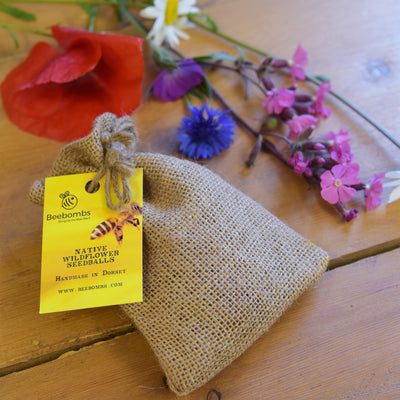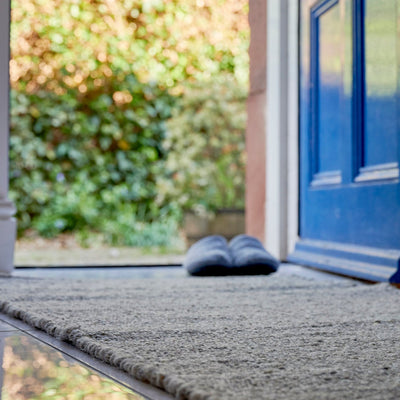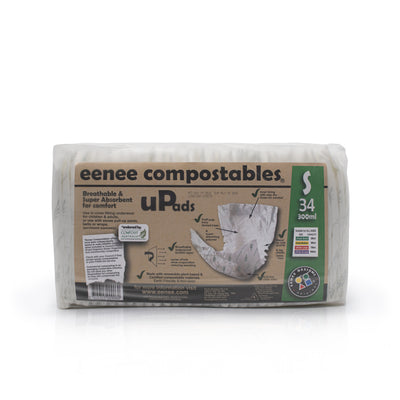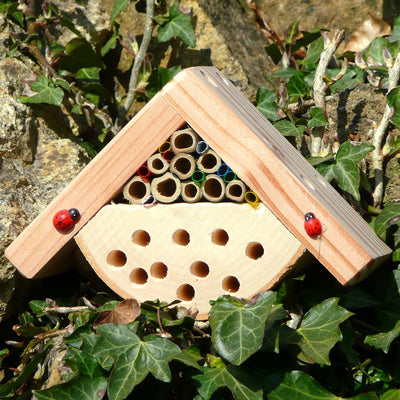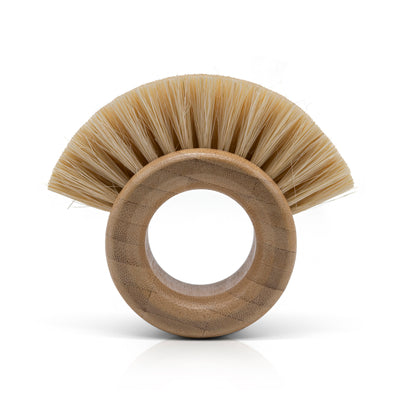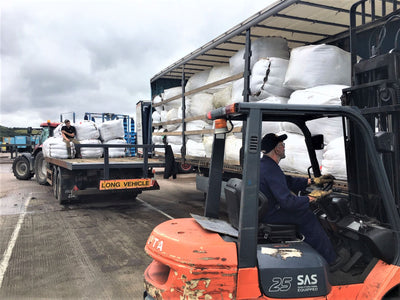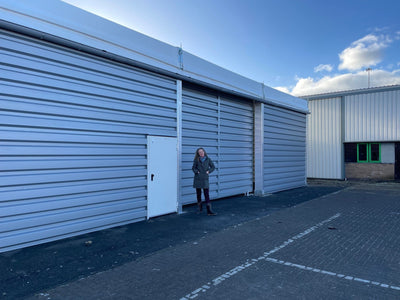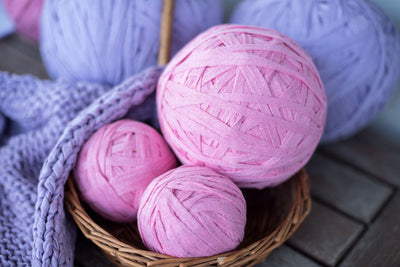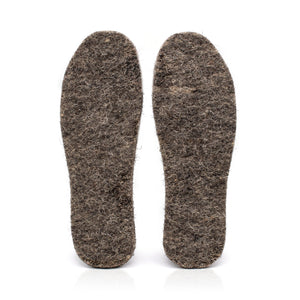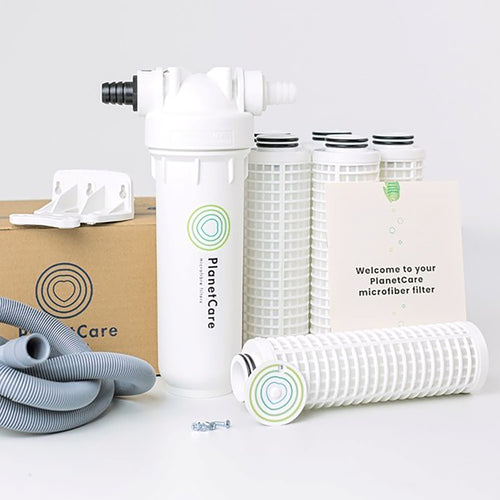We need to reduce plastic in the oceans. We have all heard it before, and most have us have probably seen lots of photos too. I got to the point where I couldn’t read any more reports on how much plastic pollution there was in the oceans. There seemed to be endless images of turtles choking on plastic bags and beaches strewn with plastic bottles, without much information on what we could do about it. We’re advised to not use plastic straws or cotton wool buds but really? In the grand scheme of things, what difference is that going to make?
So I looked into things a bit more, to see if there were some simple things we could do as consumers and citizens to reduce plastic in the oceans and before that, waste streams. It’s a complex problem and the suggestions below won’t solve it, but if we all take some of the actions then it all helps. We have to realise that the small things we do as individuals are worth it because enough other people are doing them too.
Value the necessary plastic
First of all, what’s actually wrong with plastic? Plastic is an amazing invention and has properties that are extremely useful. In the right place, plastic is a great material. I think some people have become so vehemently anti-plastic that we forget that it can be of benefit to us. Plastic is a democratising material. It makes things more affordable. Plastic is light, strong and durable so if you’re making something that should last for many years, then there’s nothing wrong with using plastic. With the right facilities, it’s recyclable. So even at the end of its long life, it can be reused for other plastic things. That’s why we use it for the components for our Chimney Sheep®. It’s strong and light. We make sure we use recycled plastic.
I looked at things like recycled aluminium but this would have been too heavy and pulled the Chimney Sheep® out of the fireplace. Plastic makes the Chimney Sheep® affordable. If they had been hand whittled out of windblown oak they would have been lovely things but too expensive to be used by most people. And even if whittled out of oak they wouldn’t have been as good as the plastic ones we have. With the plastic being so durable it means that once the felt head is past its best (which is usually after about 10 years) then we can just replace the felt head and reuse the plastic handle! So in the right place, plastic is good and we shouldn’t hate all of it.
Reduce how much plastic we buy
So even though it is a cheap material, we should value plastic. We should look at what we’re buying and consider whether it’s going to last us a long time or not. We rarely think about the end of life of the things we buy. Shopping for ketchup for example. Should we buy the plastic bottle or the glass one? Both are recyclable but do we trust the plastic to be recycled properly? A trip through the supermarket is filled with these little dilemmas. Organic onions in an annoying plastic mesh bag, or non-organic ones that are sold loose, that you can put in the little string bag that you remembered to bring? There are lots of simple things you can do in everyday life to reduce the amount of plastic you buy and therefore reduce the amount of plastic in oceans.
Remember to bring bags with you to the shop! You can get little fold-away ones like these that will fit in your pocket or just keep some in your car to ensure you always have them. The bag tax was successful in reducing the use of single-use bags. But customers just bought more “bags for life” and used these just once and chucked them away. Many supermarkets offer a recycling facility for plastic bags so make use of this when your plastic bag collection gets too big.
Do we need to buy so much bottled water? According to Statistica, approximately 3 billion litres of bottled water were consumed in the UK in 2023. Save money and reduce plastic use by refilling a water bottle! If you don’t like the taste of chlorine, get a water filter or buy your water in 10 litre water boxes. This is one cardboard box and a water bladder instead of 10 or 20 plastic bottles. If you like it fizzy then buy a SodaStream!
Use greaseproof paper instead of clingfilm for wrapping food. Our If You Care baking parchment is made from FSC timber and is re-usable a few times then compostable or recyclable.
Don’t use “normal” baby wipes. Instead, use biodegradable ones! We throw away an astonishing 11 billion wet wipes as a nation. They’re a great invention but there’s no need to use ones made of polyester and polypropylene. There are some great wipes on the market that are 100% biodegradable which are just as good (though you still mustn’t flush them down the loo!). Reusable wet-wipes are a good idea too.
Re-use plastic
Even single-use plastics can be used more than once and doing this will help to reduce plastic in oceans. Carrier bags can be re-deployed as bin liners. Plastic bags without holes can be used for collecting up compost waste, before then being binned.
Wash out plastic bags! We’re so used to just throwing them away and getting a new clean one out that it seems weird to wash plastic bags. But they can be washed with soapy water and hung out to dry, then re-used.
Plastic food trays can be used for plant drip trays. Or for putting in a piece of our garden sheep wool and growing cress and micro-nutrients.
There are some great ideas for ways of re-purposing plastic bottles here.
Think about how you dispose of plastic
However we shop, it’s hard to avoid some element of plastic packaging. So how does it get from your house to the sea? While there are some horrid litter louts who don’t give a sh*t, a significant amount of rubbish ends up in the sea by mistake. It’s estimated that 80% of marine litter comes from land. So you put the bits of plastic in the recycling and put the bin out for collection. What happens if it’s a windy day, and the bin tips over, or while it’s being emptied into the lorry some of it blows out? It’s too easy for bits of plastic to get blown into watercourses and float on into the sea entirely by mistake. So a simple way to reduce plastic in the oceans is thinking about how you can stop the light little bits of plastic getting airborne on their trip from bin to truck to a recycling plant or landfill. If you’re chucking away several little bits of plastic, it's better to have one secure bag of rubbish if possible.
If it’s a really windy night, put the rubbish out in the morning rather than the night before, so there’s no risk of it blowing over and travelling off for adventures out to sea.
Recycle Plastic
Not all plastic can be recycled, but if it’s recyclable, then do. Even at the Chimney Sheep factory where I go on and on about environmental things, I will still find the odd yoghurt pot or drinks bottle in the bin. Rinse it and recycle it! It really is a quick and easy job!
Recycling plastic is a complicated business. Recycling facilities have to separate out the different types of plastic to clean it and pelletise it for making into new products. Read a bit more about it here.
Some companies have developed a way of mixing all the plastic and melting it down. It can’t be re-made into “fine” plastics, like our recycled housewares. It can be extruded, i.e. made into goo and squirted out of a mold, to make plastic lumber. This is what is used to make our composter and other heavy-duty plastic items. It’s really robust, lasts for decades, and can be used instead of wood in locations where you want a material that doesn’t rot, splinter, or need sanding down and varnishing every year.
To burn or not to burn?
Don’t burn it in your home fire or bonfire, whatever you do! Burnt plastic gives off all kinds of noxious environmentally damaging chemicals. You knew that right? I have always been opposed to the idea of burning plastic as a fuel. There are so many different types of plastic with different burning/melting points that to burn mixed plastic at a temperature that’s correct for some will mean that others burn at a temperature at which they give off harmful chemicals. However, there are power plants that are sophisticated enough to burn plastic safely without emitting pollution. Plastic is a hydrocarbon, oil in a highly concentrated form, so its calorific value is very high. Plastic in landfills will take centuries to biodegrade, and in the process leach chemicals and microplastics into the environment. If plastic can’t be recycled into products then recycling it into energy is an efficient way of re-using it, if it can be done cleanly.
BUY RECYCLED PLASTIC
There’s absolutely no point in going to all that trouble of sorting it and recycling it if you don’t create demand for recycled plastic by buying things made of it afterwards. It’s surprisingly hard to find goods made of recycled plastic. That’s why we’re adding more and more to our Chimney Sheep shop, to have as wide a range of the products as possible.
There are some businesses and organisations that are making amazing things with recycled plastics. These guys recycle ocean plastic into kayaks and beachwear. It’s genius!
There are a number of companies that do the plastic lumber now, but Solway Recycling who are local to us do a great job of collecting up agricultural plastic waste and remaking it into nice solid articles.
When you’re thinking about getting decking, fencing or raised beds, look into getting them made of plastic lumber. Of course, it needs to look great in your garden as well, but there is an increasing range of products that are nicely designed and finished as well as removing literally tonnes of plastic from the waste stream.
We're always on the lookout for ingenious things made of recycled materials. Here are a selection, and if you come across any, let us know. We love to showcase other people's sustainability genius!
https://chimneysheep.co.uk/collections/sustainable-products-made-of-recycled-materials







